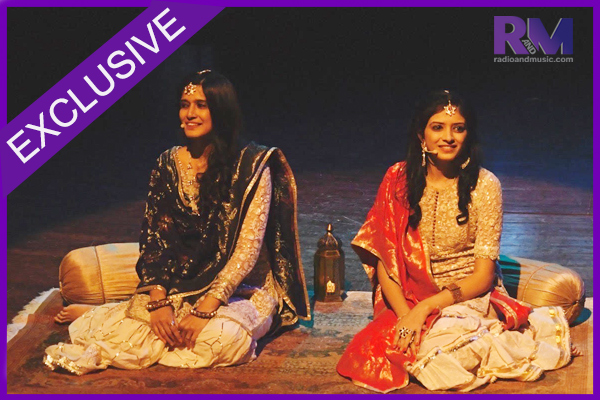MUMBAI: Sisters Kamakshi and Vishala Khurana, co-founders of The Sound Space, are not just music educators – they are visionaries working at the intersection of tradition, innovation, and empathy. With backgrounds in Indian classical music and psychology, the duo has spent over a decade redefining how music can reach and transform lives – especially children from underserved communities.
As AI continues to reshape the learning landscape, the Khurana sisters are ensuring that its integration into music education retains something deeply human: the joy of connection, the spark of creativity, and the emotional depth that only music can offer.
“Music isn’t just about performance – it’s about unlocking the human spirit.”
For Kamakshi and Vishala, the journey began with a deep understanding of both how people learn and why they connect with music.
“Music, for us, isn’t just about performance or technique — it’s about what it unlocks in the human spirit,” says Vishala. “Psychology gave us the lens to understand how people, especially children, learn and evolve. So when we brought AI into our work, we wanted it to respond to moods, rhythms, and even small emotional triumphs — not just deliver content.”
Their approach to technology is rooted in kindness, not control. “We’ve tried to make AI feel more human, more patient,” adds Kamakshi. “Because music education is as much about the heart as it is about the mind.”
On fears that AI will take the soul out of music: “We say — it won’t.”
With AI tools gaining prominence in creative fields, many worry that automation may dilute the soul of human expression. The sisters are quick to address this.
“That’s a fear we respect. Music is sacred — it lives in families, memories, traditions,” says Kamakshi. “But we don’t see AI as the performer; we see it as the backstage crew. The spotlight still belongs to the human.”
In their experience, AI can serve as an enabler — especially for children who lack access to trained mentors or instruments. “It helps a young learner hear their idea come to life — even if they don’t yet have the technical skill. That’s not replacing music’s soul. That’s expanding its reach.”
Making music mobile: The Sound Space on Wheels
Their initiative, Sound Space on Wheels, is a standout example of using tech for good. These mobile music labs — vans equipped with tablets, keyboards, AI-based feedback tools, and traditional instruments — are designed to reach children in slums and underserved areas.
“We asked ourselves: What if the next A.R. Rahman is in a basti with no access to instruments, let alone a teacher? That’s where the van came in,” explains Vishala. “In some cases, a child composed their first melody within 30 minutes. They had never touched an instrument before.”
What makes this model powerful is its scalability. “A human teacher can’t be everywhere at once. But AI can plant the seed of music where traditional systems never reached,” says Kamakshi.
From rigid methods to responsive learning
Traditional music training often follows a rigid, uniform path. But children don’t learn the same way — some are more rhythmic, others more melodic or visual. That’s where AI steps in.
“AI can listen and adapt. It can recognize when a child is struggling or ready for a challenge. It can even change the way a concept is introduced based on how the child learns best,” says Vishala.
This level of personalized learning, they believe, can completely transform how music is taught. “Imagine a learning space where every child feels seen — where their style is celebrated. That’s the future we’re building.”
Blending tech with touch: “The heartbeat is still the mentor.”
While AI can offer feedback, track progress, and provide access, the sisters believe it cannot replace the emotional nuances of human mentorship.
“A machine can’t say, ‘I believe in you,’ or smile reassuringly before a performance,” says Kamakshi. “That’s the role of a mentor.”
Their classrooms and vans follow a co-teaching model, where technology enables, but teachers inspire. “When a child explores something new on a tablet, and a teacher steps in to connect it to an emotional story — that’s where magic happens.”
The vision ahead: Joy, not pressure
As they continue to expand The Sound Space and its impact, the Khuranas remain clear on their guiding principle: “Education, especially music education, must spark joy — not pressure,” says Vishala. “We are here to nurture voices, not just train them.”
With AI as their tool and empathy as their compass, Kamakshi and Vishala are turning every note into a step toward inclusion, confidence, and self-expression.
Source:https://radioandmusic.com/entertainment/editorial/news/250609-tech-the-bridge-the-mentor-the-heartbeat

